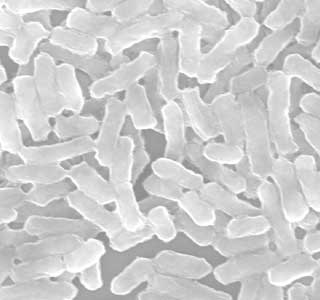Popeye the Gardener: E. Coli and the Home Gardener
 If you have been listening to the news over the past few days, you may have heard that the US is having a minor outbreak of E. coli O157 (no relation to Heinz 57).
If you have been listening to the news over the past few days, you may have heard that the US is having a minor outbreak of E. coli O157 (no relation to Heinz 57).
There have been a little over 100 people sick and one has died. A minor outbreak as far as this illness goes (there are 73,000 cases of E. coli O157 every year) but this one is making the news because the Dole corporation (Supplied by Natural Selection Food) looks to be the source of the contaminated spinach.
Bagged spinach is being tossed away by the tons and rumor has it that Popeye the Sailor has been admitted to the hospital. It’s not clear whether this is because of shock or because of an E. Coli O157 infection, but Bluto swears he had nothing to do with it this time.
E. coli is a bacteria that lives in the intestines of most mammals and normally it doesn’t make us sick, but sometimes bad things happen to good bacteria and they grow up to be E. Coli O157.
Yeah, yeah, yeah… so what does this have to do with gardening? We grow tasty food at home so we don’t have to deal with foodborne problems like this. Right?
Wrong!
Home organic gardeners are just as likely, maybe even more likely, to accidentally contaminate their home gardens with degenerate E. coli bacteria if they are not careful.
Let me ‘splain.
E. Coli O157 is transmitted in one of two ways. The first is through contaminated intestinal meat from cows that gets ground up in your average hamburger or ground beef (Mmm.. Makes me want to run out for McD’s right now). The other way of contamination is through the… erm… tail end waste products of many mammals, such as horse or cow.
One of the most favorite fertilizers for the organic gardener is cow or horse manure because it tends to be cheap (free if you haul it away) and does miraculous things for a vegetable or flower bed. This is where the E. coli danger in your garden starts.
Cow and horse manure is 100% safe to use in the garden if it is thoroughly composted and composted correctly. If correct composting doesn’t happen, you could be taking a not so fun field trip to your local emergency room.
Remember why you can’t get a medium rare burger at your favorite restaurant anymore? It’s because they have to heat the meat to a certain temperature for a certain length of time in order to kill the E. coli bacteria inside. The same goes for the manure in your compost pile. Your compost pile needs to heat up to a certain temperature for a certain length of time in order to kill the E. coli.
A home gardener, especially if they are inexperienced, may not be composting correctly or long enough to render raw manure safe to use in their gardens. They may be spreading only partially rotted or under heated manure compost on their beds and putting themselves and their family at risk for an E. coli O157 infection.
Lesson here is that if you plan on using manure in your garden, make sure you let it get good and composted long before you ever let it near your beds. It smells much better after being thoroughly composted and *bonus* the same hot composting process that kills E. coli will kill weed seeds in the manure too.
Wash your food from your garden thoroughly as well to help prevent any accidentally surviving e. coli from getting into your garden greens. Do these things and you too can be strong to the finich ’cause you eat your spinach.

Pingback: Dog Crap Has No Business In Your Vegetable Garden.
I was wondering if I might be endangering my health. I collected a few batches of mulched lawn trimmings that I scraped from under my lawn mower deck. I put the material in a plastic container with a lid. I left the material through one winter. When I opened the container, it had a very rank odor. I turned the container on it’s side and left the lid off so it would, possibly, dry out. It dried out a little, but it still smells rank. I’m sure the material contains ground insects, ect. Is it possible that the material could be harboring E. Coli? I only plan on using it on tomatoes, on top of the soil. Can E. Coli travel though a tomato plants vascular system?
Daryl, your high-content nitrogenous material is smelling bad from becoming anaerobic. As material that is high in nitrogen does, it compressed, squeezing out oxygen and allowing aneraobic bacteria to populate your material. The anaerobic bacteria yield a waste product that small very bad compared to that of aerobic bacteria.